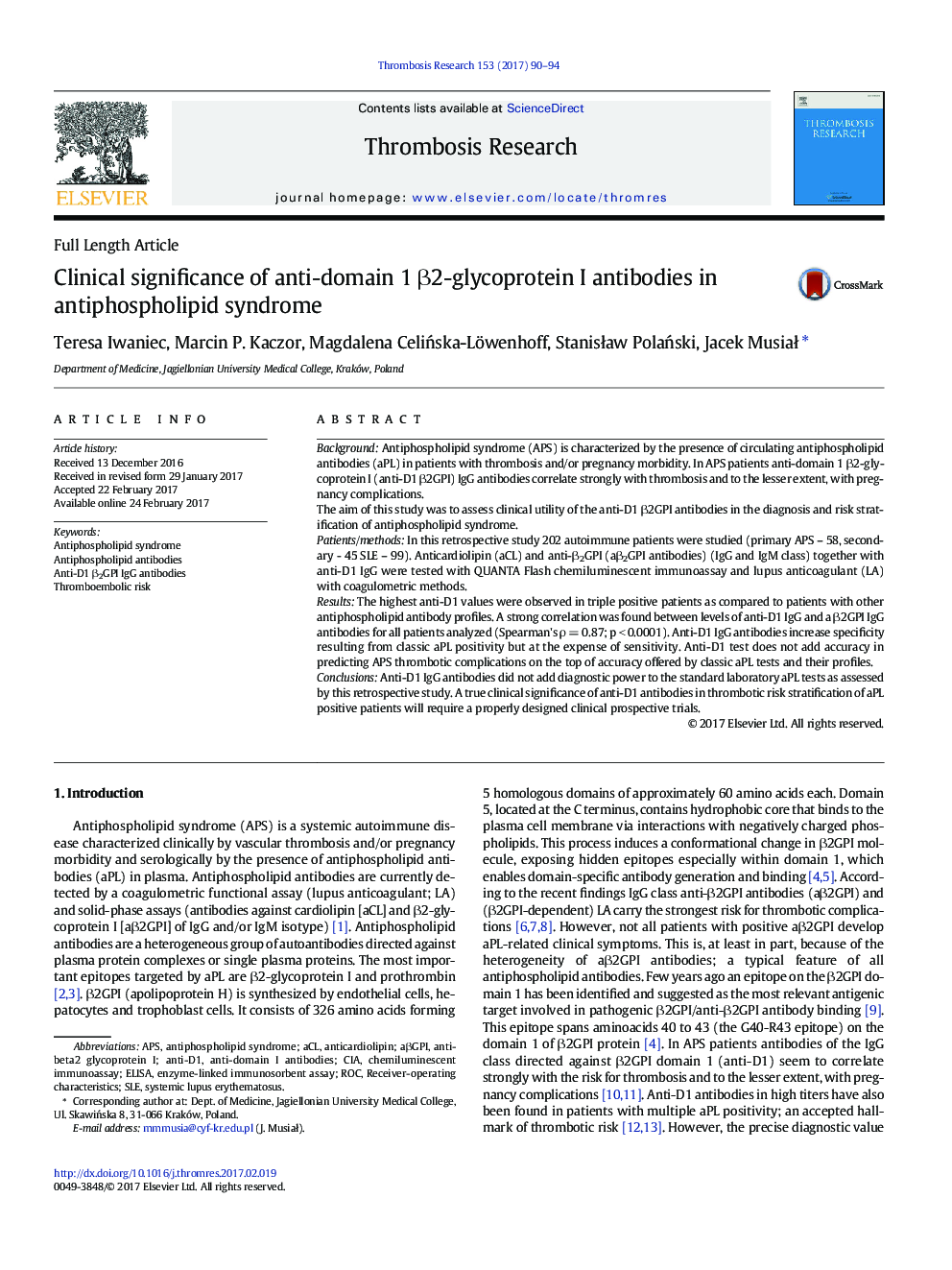| Article ID | Journal | Published Year | Pages | File Type |
|---|---|---|---|---|
| 5621966 | Thrombosis Research | 2017 | 5 Pages |
â¢In APS patients elevated levels of anti-D1IgG antibodies are associated with the history of thrombosisâ¢Anti-D1 IgG antibodies highly correlated with the aβ2GPI IgG antibodiesâ¢Adding positivity for anti-D1 to the aβ2GPI IgG or triple aPL did not add to the prediction power of these tests.â¢Anti-D1 IgG antibodies, as assessed retrospectively, did not add diagnostic power to the standard laboratory aPL tests.
BackgroundAntiphospholipid syndrome (APS) is characterized by the presence of circulating antiphospholipid antibodies (aPL) in patients with thrombosis and/or pregnancy morbidity. In APS patients anti-domain 1 β2-glycoprotein I (anti-D1 β2GPI) IgG antibodies correlate strongly with thrombosis and to the lesser extent, with pregnancy complications.The aim of this study was to assess clinical utility of the anti-D1 β2GPI antibodies in the diagnosis and risk stratification of antiphospholipid syndrome.Patients/methodsIn this retrospective study 202 autoimmune patients were studied (primary APS - 58, secondary - 45 SLE - 99). Anticardiolipin (aCL) and anti-β2GPI (aβ2GPI antibodies) (IgG and IgM class) together with anti-D1 IgG were tested with QUANTA Flash chemiluminescent immunoassay and lupus anticoagulant (LA) with coagulometric methods.ResultsThe highest anti-D1 values were observed in triple positive patients as compared to patients with other antiphospholipid antibody profiles. A strong correlation was found between levels of anti-D1 IgG and a β2GPI IgG antibodies for all patients analyzed (Spearman's Ï = 0.87; p < 0.0001). Anti-D1 IgG antibodies increase specificity resulting from classic aPL positivity but at the expense of sensitivity. Anti-D1 test does not add accuracy in predicting APS thrombotic complications on the top of accuracy offered by classic aPL tests and their profiles.ConclusionsAnti-D1 IgG antibodies did not add diagnostic power to the standard laboratory aPL tests as assessed by this retrospective study. A true clinical significance of anti-D1 antibodies in thrombotic risk stratification of aPL positive patients will require a properly designed clinical prospective trials.
